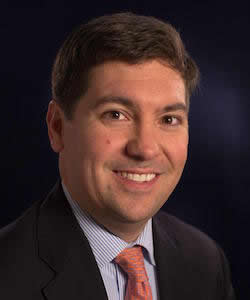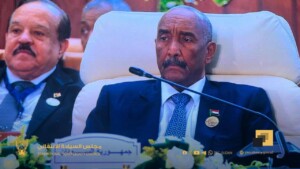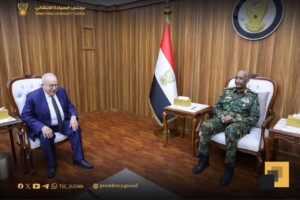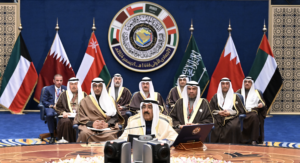Cameron Hudson: ‘Outside backers perpetuate Sudan stalemate’

Cameron Hudson, a senior fellow in the Africa Program at the Center for Strategic and International Studies (CSIS) in Washington (Photo: Supplied)
In an exclusive interview with Radio Dabanga yesterday, Cameron Hudson, a senior fellow in the Africa Program at the Center for Strategic and International Studies (CSIS) in Washington D.C., discussed the multifaceted nuances encompassing Sudan’s ongoing conflict and the upcoming second round of Geneva talks. The talks, aimed at addressing the crisis, have faced significant obstacles, including the Sudanese Armed Forces (SAF) refusal to participate.
Hudson emphasised that SAF’s decision to boycott the talks is not final. “It is a reversible decision,” he said, highlighting that SAF could be compelled or choose to change its stance depending on the evolving situation on the ground. He pointed out that SAF has consistently insisted on the implementation of the previous Jeddah agreement and seeks recognition not as an equivalent to the Rapid Support Forces (RSF), but as the ‘legitimate government’ of Sudan.
“The US has not adequately addressed these concerns,” Hudson noted, criticising the American approach of pushing forward with the Geneva talks without resolving these fundamental issues. He described this as a substantial oversight, given the SAF’s demands for assurances on the implementation of agreements.
When asked about the US’s strategy, Hudson remarked that Washington is trying to balance its approach by acknowledging SAF’s authority while simultaneously undermining it by rejecting its governmental delegation in favour of a military one. “It’s very difficult to have it both ways,” he stated, explaining that this inconsistency has contributed to the SAF walking away from the negotiating table.
Regarding potential solutions, Hudson expressed scepticism about the current strategy of the US Special Envoy Tom Perriello, who aims to create momentum in the talks with or without SAF participation. “At the end of the day, SAF is the constitutional authority in the country, whether we like it or not,” Hudson stated, implying that any progress without the Sudanese army would be negligible and not lead to a lasting resolution.
Hudson also addressed the possibility of a military victory in the conflict, suggesting that such an outcome would only be feasible if one side were to lose its external backing. “If the UAE were to suspend its support to the RSF, or if the SAF lost backing from countries like Egypt, you could imagine a shift in the balance of power,” he explained. However, he noted that as long as both sides maintain their external support, a military stalemate is likely to continue.
On the humanitarian front, Hudson painted a grim picture, acknowledging the severe difficulties in delivering aid amidst the conflict. While the RSF has permitted cross-border assistance, the army has not, complicating efforts to provide relief to the most affected areas.
Hudson warned that “a real humanitarian breakthrough is unlikely” unless SAF changes its position, especially as floods resulting from the rainy season have already affected 11 states, causing at least 53 deaths, 208 injuries, and displacing nearly 10,000 families, with Red Sea state, Kassala, and West Darfur hardest hit.
The Africa commentator concluded by underscoring the international community’s role in pressuring external actors to cease their support to both warring parties, a step he believes is crucial for any significant diplomatic progress. Without such pressure, the likelihood of a peaceful resolution remains slim.
As the conflict in Sudan rages on, the Geneva talks are poised to be a critical, albeit uncertain, step in the search for peace. In navigating the delicate balance of power, the international community will need to address the core issues raised by both sides to make any headway.











 and then
and then